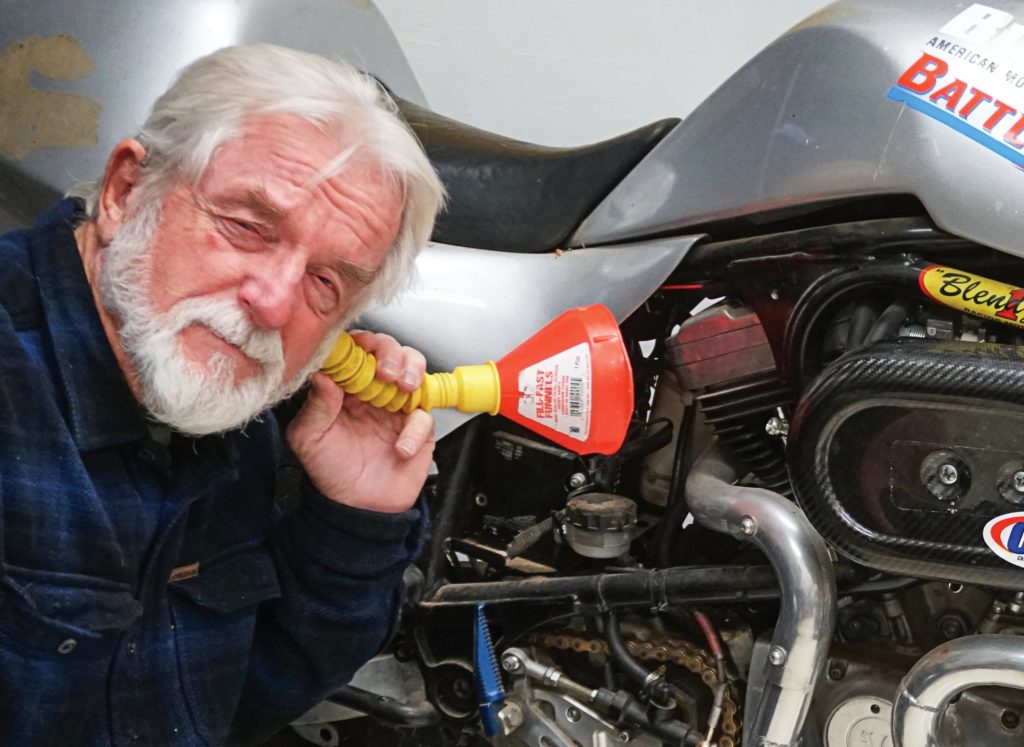Question: What is the word most heard when old riders gather?
Answer: “What?”
According to the National Institute on Aging, “approximately one in three people between the ages of 65 and 74 experience hearing loss, and nearly half of those older than 75 have difficulty hearing.” This stat is for the general population. As far as the older riding population is concerned, it wouldn’t surprise me to learn that three in three people — you know, 100% — are serial users of “What?”
At 11 dog years old I’m a bit of an expert on hearing loss. It began in my late 40s and has gotten to the point where hearing aids no longer do the job; I’m on my sixth set. I have what is called sensorineural hearing loss. This means that my inner ear, cochlea etc., has been damaged to the point of permanent hearing loss. A cochlear implant is the next step and that is an “iffy” solution.

This is not a “poor me” plea. I deal with it and move on. My reasons for mentioning this revolve around the high probability that you too are experiencing hearing loss and are probably suffering in literal silence. Aside from the joke material we give our friends and family, hearing loss can have profound and life-changing consequences. Because of the difficulty with communication, hearing loss can cause a person to withdraw, to avoid being around people. This continual reduction of one’s social circle generally leads to depression. There is also a reported link between moderate-to-severe hearing loss and dementia. In fact, one report shows that the hearing impaired are five times more likely to develop dementia.
Hearing loss, and the reasons for it, is a complex subject that can’t be explored in these few words. What I want to do, though, is to give you two pieces of hard-learned advice. Listen up; it’s important to your well-being…seriously.
The first thing you need to do is get a baseline reading on your hearing ability…an audiogram. Have the test done by, ideally, an audiologist and not a “hearing aid specialist.” The difference is in training. An audiologist holds a doctoral degree (AuD) and is trained to evaluate hearing loss and related disorders. That latter point is critical in determining the probable cause of hearing loss and the appropriate treatment. A hearing aid specialist is trained to sell hearing aids. Do I sound a bit critical and cynical? Yep and yes, and justifiably so. Even if your hearing is fine (or you think it is), it’s important to get this baseline evaluation. Since your hearing will degrade, a baseline tells you how much over a period of time.
Now, let’s jump ahead to the point where you need hearing aids. The first thing you’ll learn is that they’re very expensive; I paid $5,000-plus for my previous set. My current set was about $1,200 cheaper but is more technically advanced. This cheaper price is because I bought them at Costco. According to Consumer Reports the mark-up on hearing aids is approximately 117%, and you are usually charged full price at the various hearing aid retailers, many of which are company-owned. Don’t bite on the first price you see; a little research can save you hundreds — if not thousands — of dollars.
This is a woefully inadequate article on a very serious subject, but if I can get a few of you to get that all-important hearing test then these few words will have done their job. Here’s how serious it is for me: If I could trade being able to talk for the ability to hear, I’d do it instantly.
…and do I really have to tell you this? WEAR EARPLUGS!
If you’d care to explain to Kittrelle why his existence on this planet is no longer required, email reg.kittrelle@comcast.net



















